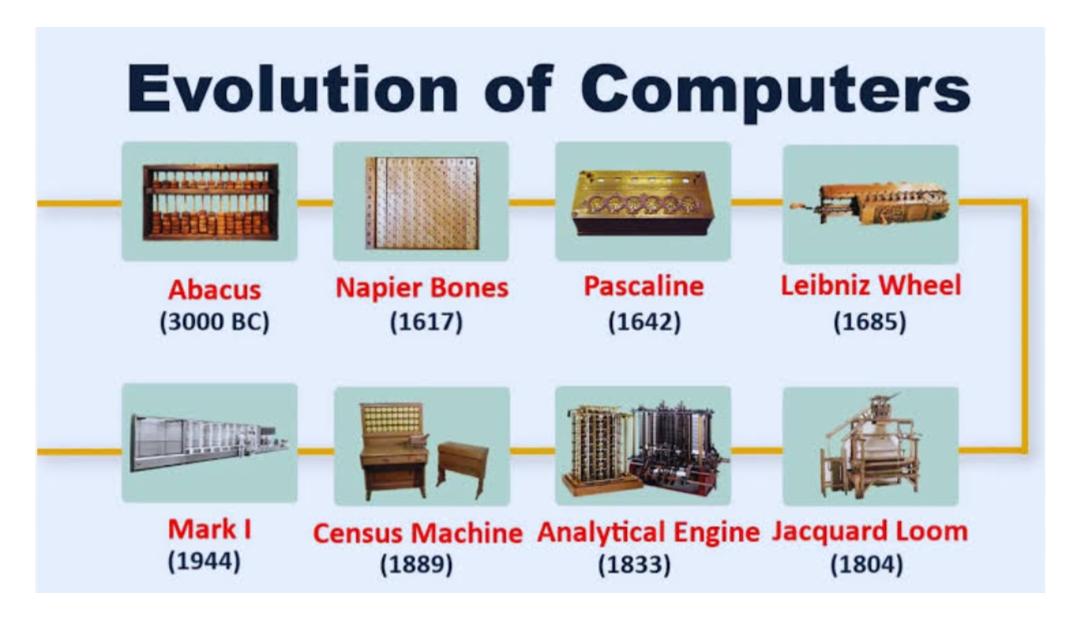The history of computers spans from ancient calculating tools like the abacus to modern, powerful electronic devices, with key developments including mechanical calculating machines, the development of the first electronic computers, and the rise of personal computers.
Early Developments (Pre-Electronic Era):
Ancient Calculating Tools:
The history of computing can be traced back to ancient times with tools like the abacus used for calculations.
Mechanical Calculators:
In the 17th century, mechanical calculating machines like Blaise Pascal's adding machine and Gottfried Wilhelm Leibniz's Stepped Reckoner emerged.
Charles Babbage's Analytical Engine:
In the 19th century, Charles Babbage designed the Analytical Engine, a steam-powered, general-purpose computer, which is considered a precursor to modern computers.
Joseph Marie Jacquard's Loom:
Joseph Marie Jacquard invented a loom that used punched cards to automatically weave fabric designs, a concept that would later be used in early computers.
The Rise of Electronic Computers:
First Electronic Computers:
The first electronic computers, like the ENIAC (Electronic Numerical Integrator and Computer), emerged during World War II, using vacuum tubes for calculations.
Vacuum Tubes to Transistors:
Early computers used vacuum tubes, which were bulky and unreliable. The invention of the transistor in the late 1940s led to smaller, faster, and more reliable computers.
Integrated Circuits and Microprocessors:
The development of integrated circuits and, later, microprocessors in the 1960s and 70s led to the miniaturization and increased power of computers.
The Personal Computer Revolution:
The invention of the microprocessor made personal computers affordable and accessible, leading to the personal computer revolution in the 1970s and 80s.
Moore's Law:
The rapid increase in the number of transistors on a chip, as predicted by Moore's Law, has driven the continued miniaturization and increased power of computers.
Key Figures in Computer History:
Charles Babbage:
Considered the "father of computing" for his design of the Analytical Engine.
Ada Lovelace:
Considered the first computer programmer for her work on Babbage's Analytical Engine.
Gottfried Wilhelm Leibniz:
Developed logic in a binary number system and is considered a founder of computer science.
John Von Neumann:
Developed the concept of stored-program computers.
Conrad Zuse:
Developed the Z3, the world's first working electromechanical programmable, fully automatic digital computer.

